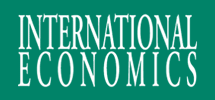| Money privatization is seen as one of the main features of modern banking. The development of private payment arrangements and the globalization of banking have indeed led to a growing questioning of central banks' monopoly on the provision of money. This paper analyzes empirically the reality of such a phenomenon and renews the attention on the role of central banks in money creation mechanisms. I adopt a novel approach to determine the weight of private money in modern banking. I first calculate orders of magnitude of the share of transactions made with central bank money in a sample of 15 countries. To investigate the evolution of this variable, I focus on the United States, and I construct new datasets on the total value of transactions in retail and large-value payment systems over the last 40 years. Thanks to this empirical novelty, I get a precise estimate of the share of transactions settled in central bank money (over the total value of transactions) in the US. I then analyze the nature of the assets used for the remaining share of transactions. To do so, I study exhaustively all the arrangements and systems in my sample of countries where settlement potentially involves private money. Empirical evidence questions the existence of a privatization of money and shows the monopoly of central bank money in modern banking. |
Abstract
|
